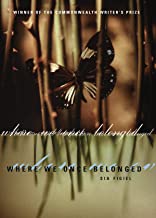Superficially, Old School by Tobias Wolff suggests the gentility of an adolescent memoir. The paroxysms of growing up will be heartfelt, but from the distance of adulthood they will surely claim no more than the relative insignificance they deserve. But Tobias Wolff’s book is not of this mould. An apparently idyllic paradise is shattered not only by a taste of forbidden fruit, but also by a significant kick up the proverbial by an angry farmer!
Again superficially, Old School presents an adolescent male in an environment of privilege, certainly one to be envied. The school’s atmosphere seems rarefied in the extreme, with the study and generation of literature elevated to render writers and would-be writers to almost God-like status. Students compete to publish in the school’s journals and employ criticism from the adulatory to the vicious, thus forming alliances and confirming enemies.
The teacher, of course, are co-conspirators, never unwilling to voice an opinion of their own, often implicitly, thereby doubly wounding.
This Old School has a tradition of inviting some very famous writers to judge its competitions.
The entries, of course, are pre-selected by teachers, but not all pupils are aware of this preservation of power. For Tobias Wolff, the prospect of a visit by Ernest Hemingway is tantamount to an invitation to dine with God. Unfortunately, his previous attempts at creative writing have not exactly set the editorial committee on fire and he has never come close to winning any of the previous events.
Then one day he finds inspiration in the words of another. He finds a story that is so clearly his own that he seems to live the lives of the characters he imagines. It is a story he commits to paper and submits for the great man to consider.
You may have guessed that all does not turn out well for our young student. Years later, having made his way through whatever life he could cobble together in New York, estranged from a previously supportive family, he returns to the Old School to discover that all was not as it seemed when he was a student there. His own recalled misdemeanours had only ever been part of the story. The book’s principal character recalls the childhood impression that personal conflicts are all that matter and that the adult world is a place where such tensions are not allowed to exist. He then realises, apparently suddenly, that this adult world is no more than an aged version of childhood’s continued confusion. It is the school and memories of it that have become old in this surprising book.








